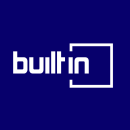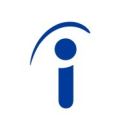In today’s fast-paced hiring landscape, a company’s employer brand can be as influential as its compensation packages or tech stack. Employer branding encompasses the strategies and tools a company uses to shape how job seekers, employees and the broader public perceive its culture, mission and workplace experience. For tech companies competing for in-demand talent, employer branding is no longer a peripheral initiative — it’s a critical component of long-term hiring success.
The need for strong employer branding has only grown in recent years. The U.S. Bureau of Labor Statistics reports that quit rates remain elevated in several knowledge and technology-driven sectors, indicating a workforce willing to move for better alignment with values, culture or career growth opportunities. At the same time, digital transparency has increased candidate expectations. Job seekers now regularly consult anonymous reviews, social media posts and third-party rankings to assess how companies treat their people.
Employer Branding Tools to Know
- Built In
- Indeed
- Glassdoor
- The Muse
- Handshake
- Symphony Talent
- PageUp
- Universum
- Hibob
- Phenom
From content platforms to employee advocacy tools, today’s employer branding ecosystem is more sophisticated than ever. The tools featured in this list help companies communicate their values, highlight employee stories and create more personalized, human experiences for job seekers. For tech professionals evaluating career opportunities, and companies seeking to stand out, understanding these tools is key to navigating the modern hiring economy.
Top Employer Branding Tools
Built In, the AI-powered recruitment and employer reputation platform, has launched a first-of-its-kind solution designed to help employers measure and shape their employer brand reputation so they can be visible, trusted and chosen by top talent.
As candidate behavior evolves, job seekers are turning to AI tools such as ChatGPT, Gemini and Perplexity to guide their career decisions. These systems now shape perceptions about where to work, influence who gets considered and define how companies are represented to candidates.
The new Built In Platform unites employer brand insights, AI-optimized content and hiring tools in one solution. It helps companies understand how AI models describe their employer reputation, identify what drives perception and take action to strengthen their visibility and trust with both candidates and AI.
At its core is the Employer Brand Reputation (EBR) Score. The tool evaluates clients by running hundreds of prompts — the exact kinds of questions people ask when deciding whether to work at a company. It then produces an overall EBR Score and in-depth Employer Brand Reputation Report for seven core areas candidates care about, including:
- Career Growth and Development
- Work-Life Balance and Well-being
- Compensation and Benefits
- Leadership and Management
- Stability and Growth
- Company Culture
- Workplace Perception
For each dimension, the report identifies the positive and negative factors shaping perception and highlights verbatim snippets from AI-generated responses that candidates are likely to see during their job search.
The solution goes beyond diagnostics: the Built In Platform also provides actionable next steps for improving employer reputation. Employers can:
- Correct inaccuracies or outdated information with structured content on their Built In company profile.
- Amplify strengths or address weaknesses by participating in employer roundups or publishing long-form articles.
- Engage in full-service content execution and consulting to systematically improve reputation scores over time.
This combination of scoring, monitoring, recommended actions, structured employer profiles, end-to-end content execution and consulting makes Built In the only comprehensive platform for measuring and shaping employer reputation to convert talent in an AI-first hiring market.
See how your employer brand is performing in AI tools like ChatGPT and Google.
LinkedIn is a professional networking platform that provides an employer branding suite including career pages, life & culture pages and employee advocacy features. It offers analytics dashboards for engagement metrics and content performance across different audience segments. Companies leverage these tools to communicate values, showcase culture and attract prospective talent. Tech professionals can use LinkedIn to research employers and confirm alignment before applying.
Indeed offers employer branding features such as customizable company pages, employee reviews and the ability to highlight workplace photos and videos. The platform publishes culture highlights and benefits information to support candidate decision-making. Employers also use Indeed’s analytics to monitor brand perception and engagement trends over time.
Glassdoor enables companies to manage their public reputation by responding to employee reviews and publishing branded content. Organizations can add photos, benefits overviews and culture narratives to help job seekers evaluate fit. Tech candidates often consult Glassdoor to assess management quality, work-life balance and compensation standards. The platform also provides benchmarking tools for comparing employer performance against industry peers.
The Muse offers multimedia company profiles featuring employee interviews, day-in-the-life videos and behind-the-scenes tours. Employers use these resources to present workplace experiences and job previews tailored to tech candidates. The platform’s editorial format engages audiences who prioritize transparency and career growth. It can be a helpful tool for storytelling-driven branding.
Ongig is a job description management and optimization platform that helps talent teams centralize, standardize, and improve job content at scale. Companies use Ongig to manage 100+ (or 1,000+) job descriptions in one searchable library, enforce compliant approval workflows and sync updates directly with their ATS or HRIS. The platform's AI tools improve readability, flag exclusionary language, support pay transparency compliance and help teams create clearer, more effective job postings without starting from scratch. Ongig also offers a Career Site Builder that transforms job content into mobile-optimized, SEO-ready pages fully synced with ATS systems.
Handshake is a student- and early-career recruiting platform that partners with colleges and universities to build brand awareness among emerging talent. It supports virtual career fairs, direct messaging and campus-specific content placements. Tech companies use Handshake to establish talent pipelines by role, skill set and institution. The platform fosters early engagement with potential candidates before they enter the workforce.
Symphony Talent’s SmashFlyX platform integrates recruitment marketing, branded career sites and candidate relationship management. Employers personalize candidate experiences, run targeted campaigns and measure engagement across multiple channels. The suite is designed to scale employer branding strategies for organizations with high-volume hiring needs. Symphony Talent supports data-driven decision-making through robust analytics.
PageUp offers PathMotion, an employee advocacy and candidate Q&A solution embedded within its talent management suite. Candidates can ask current employees questions about roles, culture and technical projects through interactive forums. Employers gain insights into candidate interests and tailor content to address common queries. PathMotion enhances transparency in the recruitment process.
Universum provides employer branding insights based on survey data from students and professionals across more than seventy markets. Its analytics platform enables companies to benchmark brand performance and refine messaging for specific talent segments. Organizations use these insights to develop data-driven employer value propositions and localization strategies. Universum’s research supports global and regional branding initiatives.
Hibob’s bob platform includes tools for internal communications, culture activation, employee surveys and recognition programs. It centralizes people analytics dashboards to track engagement and retention related to employer brand initiatives. The solution supports hybrid and remote work environments, enabling employers to align internal culture with external messaging.
Phenom is a talent experience platform that helps companies manage career sites, candidate engagement and employer brand touch points across the hiring journey. The platform focuses on creating personalized career experiences that connect employer content, job discovery and candidate communication in one system. Phenom is commonly used by large organizations to support consistent employer branding while improving candidate engagement at scale.
Fairygodboss is an employer branding and workplace community platform focused on career experiences, benefits and company culture. The platform features employee-generated reviews, salary insights and community discussions that shape how employers are perceived by job seekers. Fairygodboss is often used by companies to understand and engage audiences seeking transparency around workplace culture and inclusion.
Comparably is an employer branding and workplace culture platform that collects employee feedback on compensation, leadership and work experience. The platform surfaces ratings and benchmarks that influence how candidates perceive companies during the research process. Employers use Comparably to monitor sentiment, highlight strengths and understand how workplace experiences shape their employer brand.
Kununu is an employer review and employer branding platform that allows employees and candidates to share feedback about workplace culture, compensation and leadership. The platform is widely used in European markets and provides employers with tools to monitor reviews and manage brand presence. Kununu influences employer reputation by surfacing third-party insights that candidates use during company research.
Yello is a campus recruiting and early-career hiring platform that helps companies build employer brand awareness among students and recent graduates. The platform supports career fairs, virtual events and targeted outreach that connect employers with early-career talent. Yello is commonly used to create consistent, branded recruiting experiences across universities and early talent programs.


















